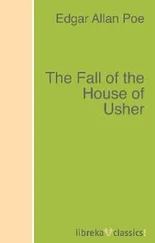I record the praises bestowed on me by Falkland, not because I deserved them, but because they serve to aggravate the baseness of my cruelty. He survived this dreadful scene but three days. I have been his murderer. It was fit that he should praise my patience, who has fallen a victim, life and fame, to my precipitation! It would have been merciful in comparison, if I had planted a dagger in his heart. He would have thanked me for my kindness. But, atrocious, execrable wretch that I have been! I wantonly inflicted on him an anguish a thousand times worse than death. Meanwhile I endure the penalty of my crime. His figure is ever in imagination before me. Waking or sleeping, I still behold him. He seems mildly to expostulate with me for my unfeeling behaviour. I live the devoted victim of conscious reproach. Alas! I am the same Caleb Williams that, so short a time ago, boasted that, however great were the calamities I endured, I was still innocent.
Such has been the result of a project I formed, for delivering myself from the evil that had so long attended me. I thought that, if Falkland were dead, I should return once again to all that makes life worth possessing. I thought that, if the guilt of Falkland were established, fortune and the world would smile upon my efforts. Both these events are accomplished; and it is now only that I am truly miserable.
Why should my reflections perpetually centre upon myself?—self, an overweening regard to which has been the source of my errors! Falkland, I will think only of thee, and from that thought will draw ever-fresh nourishment for my sorrows! One generous, one disinterested tear I will consecrate to thy ashes! A nobler spirit lived not among the sons of men. Thy intellectual powers were truly sublime, and thy bosom burned with a god-like ambition. But of what use are talents and sentiments in the corrupt wilderness of human society? It is a rank and rotten soil, from which every finer shrub draws poison as it grows. All that, in a happier field and a purer air, would expand into virtue and germinate into usefulness, is thus concerted into henbane and deadly nightshade.
Falkland! thou enteredst upon thy career with the purest and most laudable intentions. But thou imbibedst the poison of chivalry with thy earliest youth; and the base and low-minded envy that met thee on thy return to thy native seats, operated with this poison to hurry thee into madness. Soon, too soon, by this fatal coincidence, were the blooming hopes of thy youth blasted for ever. From that moment thou only continuedst to live to the phantom of departed honour. From that moment thy benevolence was, in a great part, turned into rankling jealousy and inexorable precaution. Year after year didst thou spend in this miserable project of imposture; and only at last continuedst to live, long enough to see, by my misjudging and abhorred intervention, thy closing hope disappointed, and thy death accompanied with the foulest disgrace!
I began these memoirs with the idea of vindicating my character. I have now no character that I wish to vindicate: but I will finish them that thy story may be fully understood; and that, if those errors of thy life be known which thou so ardently desiredst to conceal, the world may at least not hear and repeat a half-told and mangled tale.
1.I confess, however, the inability I found to weave a catastrophe, such as I desired, out of these ordinary incidents. What I have here said, therefore, must not be interpreted as applicable to the concluding sheets of my work.
2.An incident exactly similar to this was witnessed by a friend of the author, a few years since, in a visit to the prison of Newgate.
3.A story extremely similar to this is to be found in the Newgate Calendar, vol. i. p. 382.
4.See Howard on Prisons.
5.In the case of the peine forte et dure . See State Trials, Vol. I. anno 1615.
6.This seems to be the parody of a celebrated saying of John King of France, who was taken prisoner by the Black Prince at the battle of Poitiers.
7.Eugene Aram. See Annual Register for 1759.
8.William Andrew Home. Ibid.
Table of Contents
Table of Contents
Volume I
Chapter I
Chapter II
Chapter III
Chapter IV
Chapter V
Chapter VI
Chapter VII
Chapter VIII
Chapter IX
Chapter X
Chapter XI
Chapter XII
Chapter XIII
Volume II
Chapter I
Chapter II
Chapter III
Chapter IV
Chapter V
Chapter VI
Chapter VII
Chapter VIII
Chapter IX
Chapter X
Chapter XI
Chapter XII
Volume III
Chapter I
Chapter II
Chapter III
Chapter IV
Chapter V
Chapter VI
Chapter VII
Chapter VIII
Chapter IX
Chapter X
Chapter XI
Chapter XII
Chapter XIII
Volume IV
Chapter I
Chapter II
Chapter III
Chapter IV
Chapter V
Chapter VI
Chapter VII
Chapter VIII
Chapter IX
Chapter X
Chapter XI
Chapter XII
Chapter XIII
Chapter XIV
Chapter XV
Chapter XVI
Chapter XVII
Chapter XVIII
Chapter XIX
Fate sits on these dark battlements, and frowns, And, as the portals open to receive me, Her voice, in sullen echoes through the courts, Tells of a nameless deed.
Table of Contents
Table of Contents
home is the resort Of love, of joy, of peace and plenty, where, Supporting and supported, polish'd friends And dear relations mingle into bliss. Thomson
On the pleasant banks of the Garonne, in the province of Gascony, stood, in the year 1584, the chateau of Monsieur St. Aubert. From its windows were seen the pastoral landscapes of Guienne and Gascony stretching along the river, gay with luxuriant woods and vine, and plantations of olives. To the south, the view was bounded by the majestic Pyrenees, whose summits, veiled in clouds, or exhibiting awful forms, seen, and lost again, as the partial vapours rolled along, were sometimes barren, and gleamed through the blue tinge of air, and sometimes frowned with forests of gloomy pine, that swept downward to their base. These tremendous precipices were contrasted by the soft green of the pastures and woods that hung upon their skirts; among whose flocks, and herds, and simple cottages, the eye, after having scaled the cliffs above, delighted to repose. To the north, and to the east, the plains of Guienne and Languedoc were lost in the mist of distance; on the west, Gascony was bounded by the waters of Biscay.
M. St. Aubert loved to wander, with his wife and daughter, on the margin of the Garonne, and to listen to the music that floated on its waves. He had known life in other forms than those of pastoral simplicity, having mingled in the gay and in the busy scenes of the world; but the flattering portrait of mankind, which his heart had delineated in early youth, his experience had too sorrowfully corrected. Yet, amidst the changing visions of life, his principles remained unshaken, his benevolence unchilled; and he retired from the multitude 'more in pity than in anger,' to scenes of simple nature, to the pure delights of literature, and to the exercise of domestic virtues.
He was a descendant from the younger branch of an illustrious family, and it was designed, that the deficiency of his patrimonial wealth should be supplied either by a splendid alliance in marriage, or by success in the intrigues of public affairs. But St. Aubert had too nice a sense of honour to fulfil the latter hope, and too small a portion of ambition to sacrifice what he called happiness, to the attainment of wealth. After the death of his father he married a very amiable woman, his equal in birth, and not his superior in fortune. The late Monsieur St. Aubert's liberality, or extravagance, had so much involved his affairs, that his son found it necessary to dispose of a part of the family domain, and, some years after his marriage, he sold it to Monsieur Quesnel, the brother of his wife, and retired to a small estate in Gascony, where conjugal felicity, and parental duties, divided his attention with the treasures of knowledge and the illuminations of genius.
Читать дальше












